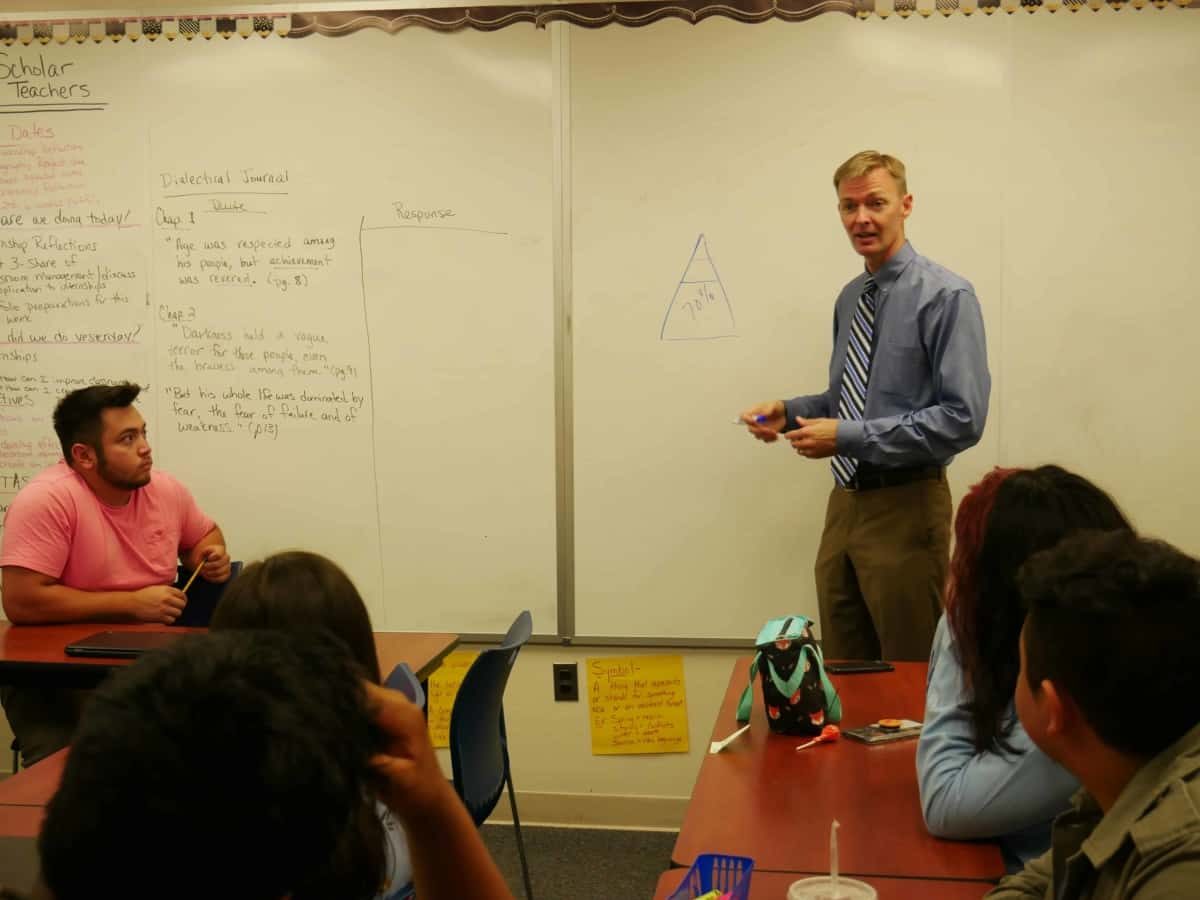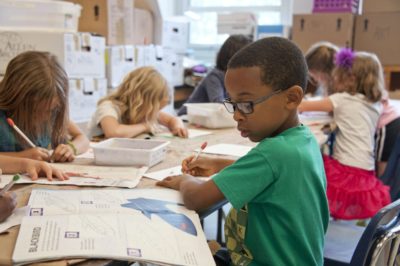
The following is Mary Ann Wolf’s “Final Word” from the May 13, 2022 broadcast of Education Matters: “Principals and the support they provide.”
I have had the opportunity to work with hundreds and hundreds of principals over the years, and I am often reminded about the very unique — and often lonely position — that principals have as school leaders. They are the only one in their building with their role, and they are the one who students, teachers, parents, and community members turn to when they’re concerned about what’s going on within a school. Principals are often unsung heroes in our schools — and this is especially true during the pandemic.
Principals are the second most important school-related factor that impacts student outcomes — second only to teachers. Having a high-quality and well-prepared principal matters — for students, for teachers, and for communities. You can quickly see the impact of the principals’ leadership when you walk into the building, and when you walk around with a principal who clearly knows every student by name and even from connections around activities or what is happening in their lives — it changes the school.
Because of their unique perspective, principals have an understanding of the wants and needs of almost all stakeholders in their schools. From speaking with today’s guests, it’s clear that what is needed and wanted most in schools right now is support.
Our principals today talked about what our students have gone through with the pandemic, and how social and emotional learning is more important than ever — as a critical foundation to ultimately ensure students are ready and able to learn. We are aware of the impact of adverse childhood experiences on students. Many children in our classrooms and adults that we know experience or have experienced Adverse Childhood Experiences (or ACEs) in their daily lives. ACEs include experiencing a potentially traumatic event, like abuse or neglect, or living with a caregiver with a mental illness or substance abuse problem. At first glance, you may not think that this is the case for many of the children in your communities or that you know, but studies show that six in ten individuals have at least one Adverse Childhood Experience. Additionally, nearly two-thirds of adults report experiencing a significant Adverse Childhood Experience before the age of 18, and more than one in five report experiencing three or more types of ACEs.
However, it appears that the COVID-19 pandemic has led to even more students experiencing adverse experiences as lives were disrupted and thrown into uncertainty. Now, as some of those students have returned to their schools and others have found themselves in completely new environments, schools are finding that an emphasis on social-emotional learning is invaluable in helping their students readjust and continue to learn.
One of the easily overlooked functions of schools, especially for young children, is socialization. Cliffdale Elementary Principal Suzanne Owen shared how the isolation of last school year affected students’ ability to build relationships and interact with one another and educators. Hortons Creek Elementary Principal Sandy Chambers shared how, coming into this year, many students hadn’t yet had the opportunity to develop work habits and an understanding of school structure. Through a focus on SEL lessons, Owen’s and Chambers’ schools are aiming to help their students develop the self-awareness and interpersonal skills necessary to be successful in and beyond the classroom.
Hickory Ridge Elementary Principal Adrian Parry also shared how important it is as a principal to let your teachers know you have their back. Creating environments in our schools that are equitable safe spaces for both students and educators allows for our students to thrive. Despite ongoing confusion, the support of our schools can help our communities to grow into the future as long as our communities support our schools now.
The need for support certainly does not end with students. Educators also had to readjust to being in the classroom while helping their students adjust to a changing environment. The topic of supporting teachers is not a new one here on Education Matters. We know that teachers do tons of work to help our children grow into well-prepared citizens and that that work deserves to be valued. However, as today’s guests pointed out: compensation is incredibly important in attracting educators to the profession, but listening to them is critical when it comes to retaining educators. As the ones in the classrooms every day, teachers provide a perspective that simply cannot be overlooked when foraging a path forward for our schools.
Principals are our unsung heroes, and empowering them to support their teachers, students, and communities is critical to ensuring that every child has access to a high-quality and equitable education.
Thank you for taking time with us to learn and think about education. That’s all for today, and we’ll see you next week.
Recommended reading



